The G7 in Syracuse was certainly a global showcase for Italian agriculture in general and Sicilian agriculture in particular, as it was an opportunity to highlight the production standards of a sector that successfully exports all over the world.
 G7 in Syracuse. (Click here for the photo gallery)
G7 in Syracuse. (Click here for the photo gallery)
Numerous fruit and vegetable companies involved in the territories attended, many not only exhibiting their products, but also taking advantage of precious moments to exchange views with the institutions. Those who were hoping for B2B meetings were however disappointed, as the entire event only involved the institutional and trade association world.
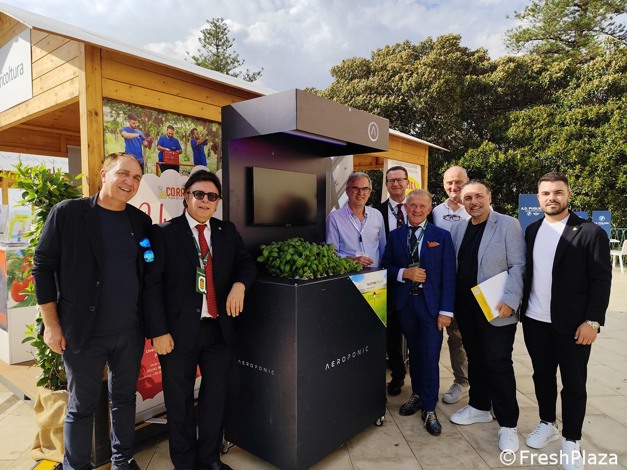 Above: the players involved in the Aeroponic project, which focuses on innovation in horticultural production.
Above: the players involved in the Aeroponic project, which focuses on innovation in horticultural production.
The G7 was not a place to do business, but rather an opportunity to communicate to decision makers the needs of a sector that requires concrete solutions: hydraulic infrastructure, roads and railways that are up to the standards of a modern economic powerhouse and the harmonization of trade rules etc. While it is true that there must be competition in a free market regime, it is equally true that the rules on trade and fruit and vegetable production must be better balanced and not disadvantage Italian companies.
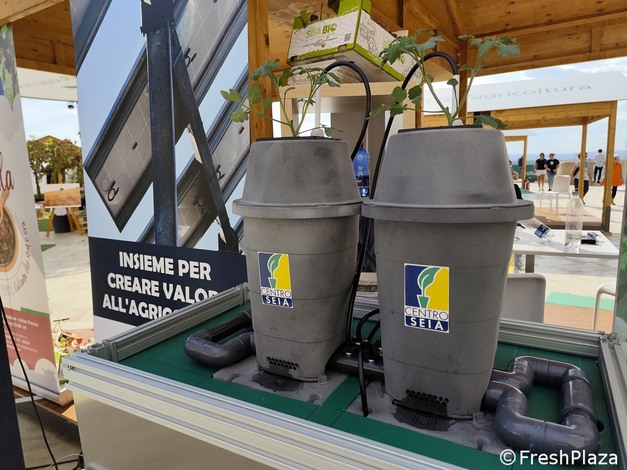 Innovation in agriculture: Seia Centre. (Click here for the photo gallery)
Innovation in agriculture: Seia Centre. (Click here for the photo gallery)
The main purpose of the G7 meeting was to identify the priorities for future global agriculture. The main points in the final document include:
- strengthening of agriculture for profitable, resilient, equitable and sustainable food systems;
- science and innovation in agriculture for climate change mitigation and adaptation;
- young generations as agents and actors of change in agriculture and food systems;
- G7 contribution to the development of agriculture and food systems in Africa.
This last point perplexed many Italian entrepreneurs, who believe competition from Africa to be unfair due to lower production costs. Many think bringing technologies and know-how to Africa means strengthening a competition that is difficult for Italian companies to face, in light of the tax pressure and bureaucratic burden that characterize the Italian system.
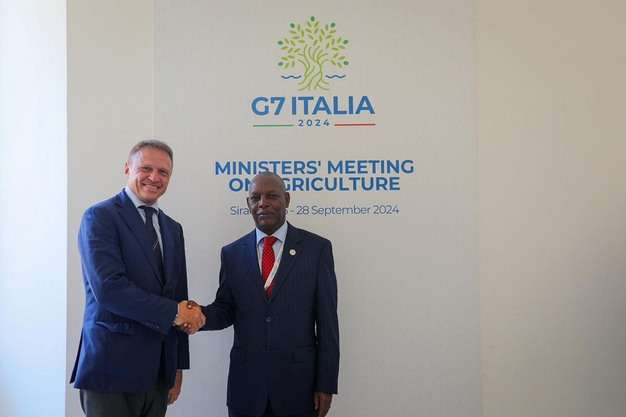 The Minister of Agriculture, Francesco Lollobrigida, met with the Minister of Agriculture and Livestock of Kenya, Andrew Mwihia Karanja. 65% of the land in Africa is arable land and a population (potential labor force) with an average age of 25.
The Minister of Agriculture, Francesco Lollobrigida, met with the Minister of Agriculture and Livestock of Kenya, Andrew Mwihia Karanja. 65% of the land in Africa is arable land and a population (potential labor force) with an average age of 25.
The meeting reinforced the excellent relations between the two countries. The two ministers discussed the importance of a fair distribution of value along the supply chains in particular, with reference to greater cooperation to improve the efficiency of the supply chains. This was in addition to talks about the infrastructural disadvantage that southern Italy has always suffered from, as well as the need to review the policy on pesticide residues on overseas products entering Europe.
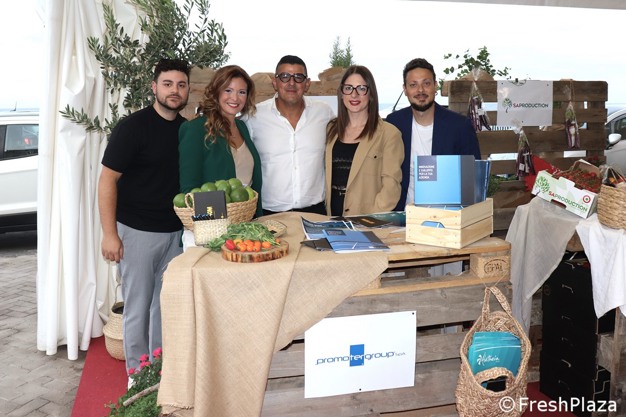 Promo.Ter Group also attended the G7. At the center, the president of the agricultural consulting company, Gianni Polizzi. (Click here for the photo gallery).
Promo.Ter Group also attended the G7. At the center, the president of the agricultural consulting company, Gianni Polizzi. (Click here for the photo gallery).
The members of the G7 also discussed Food Sovereignty. The commitment is to responsibly invest in agriculture and food systems that provide safe, affordable, nutritious and quality food for all, recognizing the cultural diversity of eating and dietary habits, and to reduce food loss and waste from production to consumption.
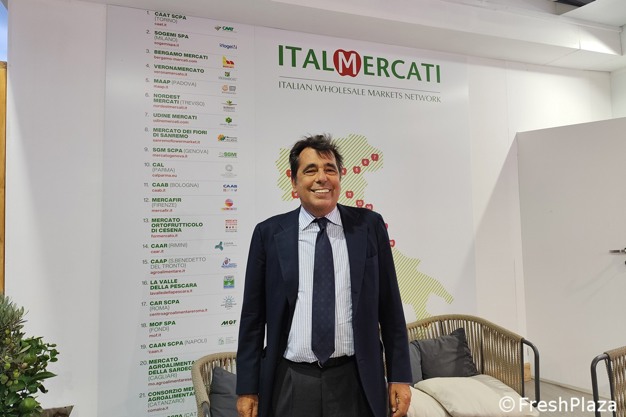 Massimo Pallottini from Italmercati
Massimo Pallottini from Italmercati
The need for solutions to tackle climate change and biodiversity loss was reiterated by the Ministers, who recognized the efforts and commitment of farmers to mitigate climate change and adapt to its effects. Priority was given to specific strategies and policies to support farmers and fishers in their role as keepers of the land, aquatic environments and natural resources.
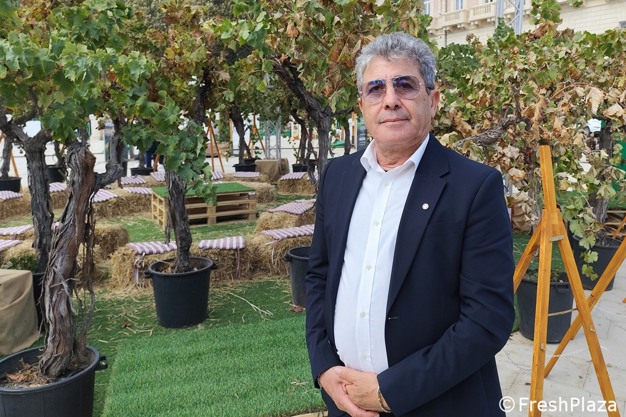 Vittorio Gona from OP AlbaBio
Vittorio Gona from OP AlbaBio
A commitment to strengthen policies for a fair distribution of value within agricultural supply chains and food systems was also signed, alongside a commitment to a rule-based, free and fair, equitable and transparent multilateral trading system.
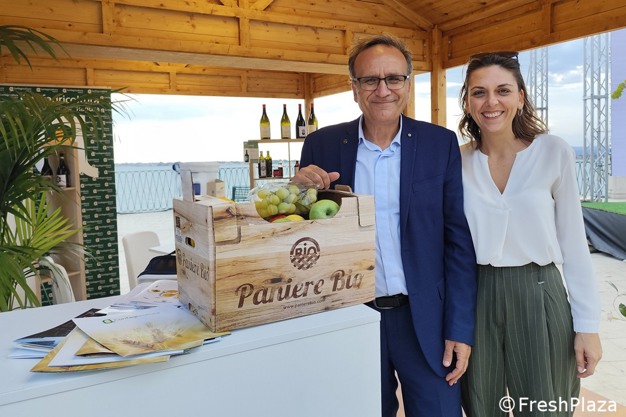 Above: Roberto and Federica Giadone from OP Natura Iblea. Below: Salvatore and Biagio Consoli from Co.Ra. and Uvella
Above: Roberto and Federica Giadone from OP Natura Iblea. Below: Salvatore and Biagio Consoli from Co.Ra. and Uvella
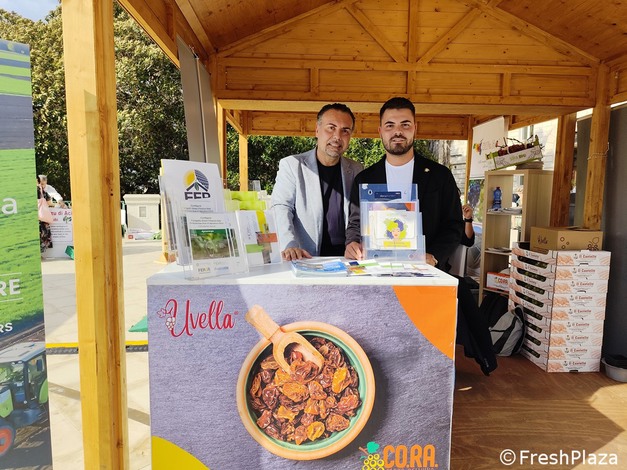
Emerging technologies such as Artificial Intelligence (AI), which could transform agriculture and food systems by optimizing processes and resources, were also discussed, underlining the commitment to promote an international environment in which AI and digital agricultural technologies respect human dignity and rights, and contribute to strengthening the sustainability and resilience of agriculture and food systems.
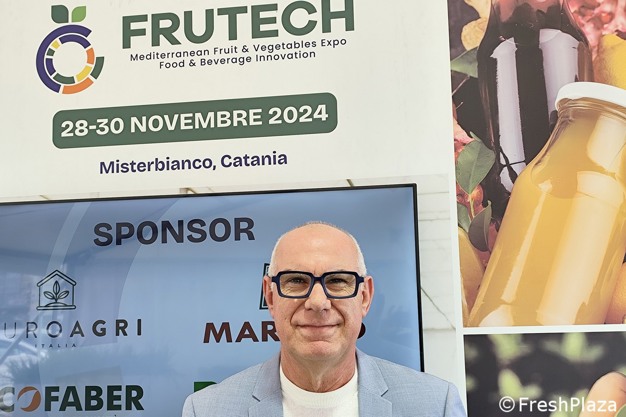 Rosario Sallemi, commercial director of the Frutech trade fair.
Rosario Sallemi, commercial director of the Frutech trade fair.
Specific focus was given to the importance of promoting youth engagement and employment in these sectors, both to learn from traditional practices and to stimulate innovation and accelerate the achievement of the Sustainable Development Goals, welcoming the results of the G7 Agri-Young Hackathon.
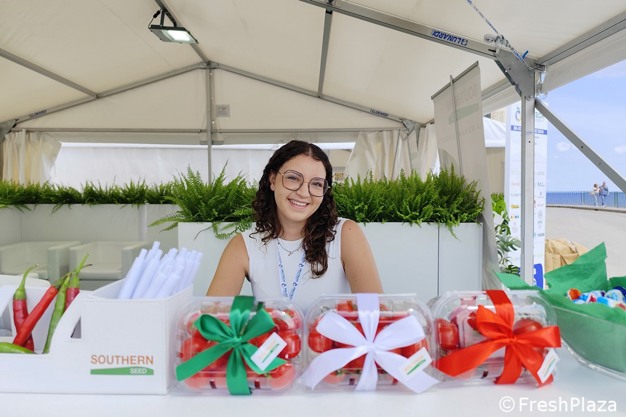 Agnese Cassibba from Southern Seed.
Agnese Cassibba from Southern Seed.
The ministers signed a commitment to further strengthen cooperation with African countries and organisations by leveraging synergies, working together to improve resilience to climate variability and promoting the transfer of knowledge and good practices.
